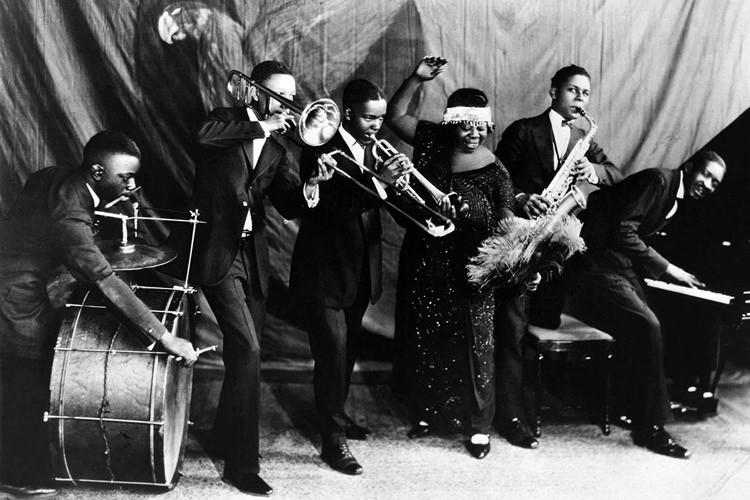Music has always been more than just a form of entertainment. It’s a universal language that transcends borders, speaks to our emotions, and tells the stories of who we are as individuals and as a society. Throughout history, music has played an instrumental role in shaping cultural identity, serving as a reflection of societal changes, struggles, and celebrations. From the influence of jazz on American culture to the global rise of K-pop, music has continuously molded the way we understand ourselves and the world around us.
The Birth of Jazz and Its Cultural Impact
One of the most iconic examples of music influencing cultural identity is the rise of jazz in the United States. Emerging in the early 20th century, jazz became not only a genre of music but also a symbol of cultural expression and social change. Rooted in African American communities, jazz blended African rhythms, blues, and European musical traditions to create something entirely unique. The genre’s improvisational style and its emphasis on individual expression mirrored the growing desire for freedom and equality during a time of racial segregation.
Jazz became the soundtrack of the Harlem Renaissance, a period in the 1920s when African American art, literature, and music flourished. Artists like Duke Ellington, Louis Armstrong, and Billie Holiday used jazz to break cultural boundaries, giving voice to the African American experience. The genre also had a significant influence on the global music scene, sparking the development of other music styles, such as bebop and later, funk and soul. As jazz spread across the world, it became a symbol of rebellion, creativity, and the fight for racial equality.
Rock and Roll: A Soundtrack for Revolution
In the 1950s, a new genre emerged in the United States that would go on to shape global culture: rock and roll. Led by pioneers like Elvis Presley, Chuck Berry, and Little Richard, rock and roll became a powerful force in youth culture. It wasn’t just about the music—it was about breaking away from the conservative norms of the previous generation. Rock and roll symbolized freedom, rebellion, and a desire to change the world.
The genre’s influence reached beyond music, affecting fashion, attitudes, and even politics. Rock stars became cultural icons, embodying the spirit of the time. As the civil rights movement, feminist movements, and anti-war protests gained momentum, rock music became an anthem for social change. The Beatles, for example, were not just a band—they were a global phenomenon that sparked the 1960s counterculture, pushing the boundaries of traditional music and shaping a generation’s view on peace, love, and freedom.
Hip-Hop: From the Streets to Global Domination
Hip-hop is another genre that has become an integral part of cultural identity, particularly within African American communities. Emerging in the 1970s in the Bronx, New York City, hip-hop was initially a form of self-expression for marginalized youth, dealing with issues such as poverty, crime, and racial inequality. Artists like Grandmaster Flash, Run-D.M.C., and Tupac Shakur used hip-hop to tell stories of struggle, survival, and resistance, and in doing so, they gave a voice to a generation that had long been ignored by mainstream society.
What started as a local subculture quickly evolved into a global movement, influencing everything from fashion to politics. Today, hip-hop is one of the most dominant music genres worldwide, and it’s more than just a style—it’s a culture. From graffiti art to breakdancing, hip-hop has shaped the way young people around the world express themselves. The genre continues to reflect the issues of the times, with artists like Kendrick Lamar and J. Cole addressing themes such as police brutality, mental health, and social justice, proving that music can still be a powerful force for change.
The Global Impact of K-Pop
One of the most remarkable global phenomena in recent years has been the rise of K-pop. Originating in South Korea, K-pop is a genre that blends various styles, including pop, hip-hop, R&B, and electronic music. What sets K-pop apart is its polished, high-energy performances, synchronized choreography, and the way it emphasizes the visual as much as the auditory. The global success of groups like BTS, BLACKPINK, and EXO has not only transformed the music industry but also reshaped cultural dynamics.
K-pop’s influence goes far beyond music. It’s a full cultural experience, with fans (known as “K-pop stans”) immersing themselves in the artistry of the performers, their personalities, and the intricacies of Korean culture. The genre has also been a platform for discussing social issues, with BTS, for example, using their music to address topics such as mental health, self-acceptance, and the pressures of fame. As K-pop continues to grow, it’s becoming a symbol of cultural exchange, bridging gaps between East and West and giving rise to a new era of global music fandoms.
Music as a Mirror of Society
Across these diverse genres, one thing is clear: music is not only a reflection of society, but it also plays a significant role in shaping cultural identity. Whether it’s jazz paving the way for civil rights, rock and roll challenging the status quo, hip-hop becoming a voice for the voiceless, or K-pop uniting people from different parts of the world, music serves as a tool for self-expression, resistance, and celebration.
In a world where cultural identity is increasingly fluid and interconnected, music remains one of the most powerful ways to define who we are, where we come from, and what we stand for. It is a universal language that connects us, speaks to us, and continues to shape the way we understand ourselves and the world around us.

No comments:
Post a Comment